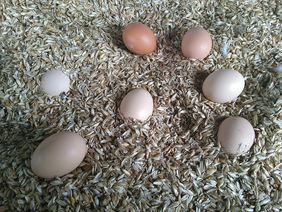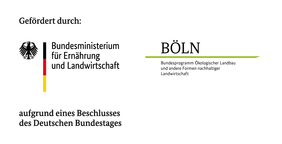In recent years, the number of farms with small flocks of laying hens (100 - 3,000 hens) has increased. This increase has been observed in both the organic and conventional sectors and logically also causes an increase in so-called dirty, cracked and S eggs (smallest size), which are not considered marketable. The industrial utilisation of such eggs, which is common for large flocks of laying hens, is not an option for small farms because the volume is too small.
The study carried out between January 2020 and September 2022 investigated the recycling options for non-marketable eggs from small production units. The study focused on organic farms (association and EU organic) and conventional free-range farms.
In addition, the study covered the utilisation of old hens. In this context, the conditions for small slaughter batches in poultry slaughterhouses were examined.
The project results are summarised in a BÖLN practical leaflet: https://www.oekolandbau.de/fileadmin/redaktion/dokumente/Forschung/Praxismerkblaetter/19OE053_Lebensmittelverarbeitung_BioEi.pdf [in German].
All project results can also be found at https://orgprints.org/id/saved_search/1853 [in German]:
- the detailed final report of the project,
- a fact sheet on the valorisation of non-marketable eggs - requirements and opportunities of important valorisation strategies,
- a practical management guide on reducing and avoiding non-marketable eggs from small laying flocks, and
- a leaflet on withdrawal periods after drug administration in laying hens in organic farming.
The project partners were Bioland Beratung GmbH and Demeter e.V. and the project was financed by the Federal Programme "Organic Farming and Other Forms of Sustainable Agriculture" (BÖLN). The client was the Federal Agency for Agriculture and Food (BLE).
Project no.: | 204 |
Categories: | Research | Socio-economics of farm business | |
Client: | Federal Office for Agriculture and Food (BLE) |
Executing Organization: | Institut für Ländliche Strukturforschung e.V. |
Duration: | Sep 2022 |
Contact person/s at IfLS: | Bettina Spengler |
Project management: | Bettina Spengler, Jörg Schramek |

